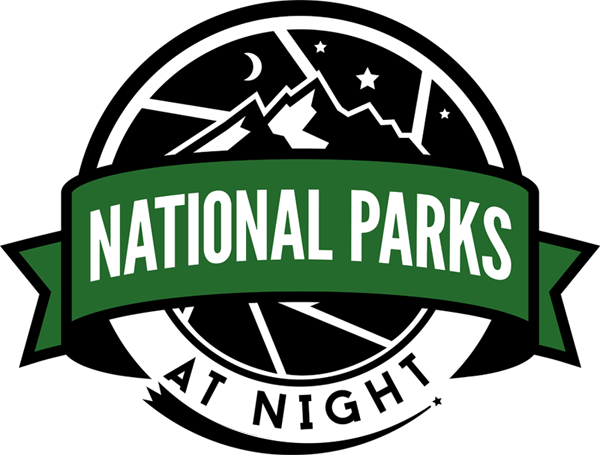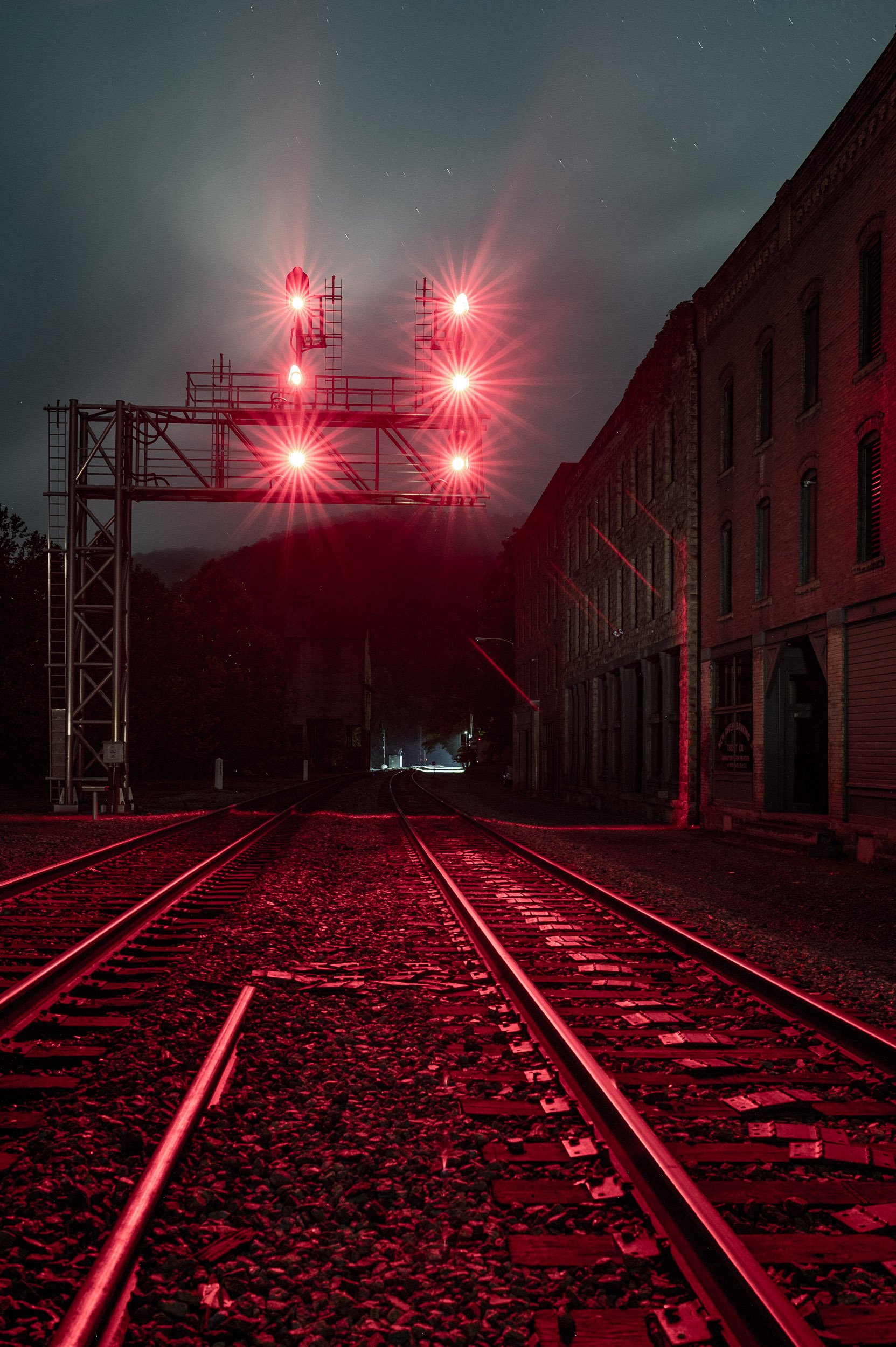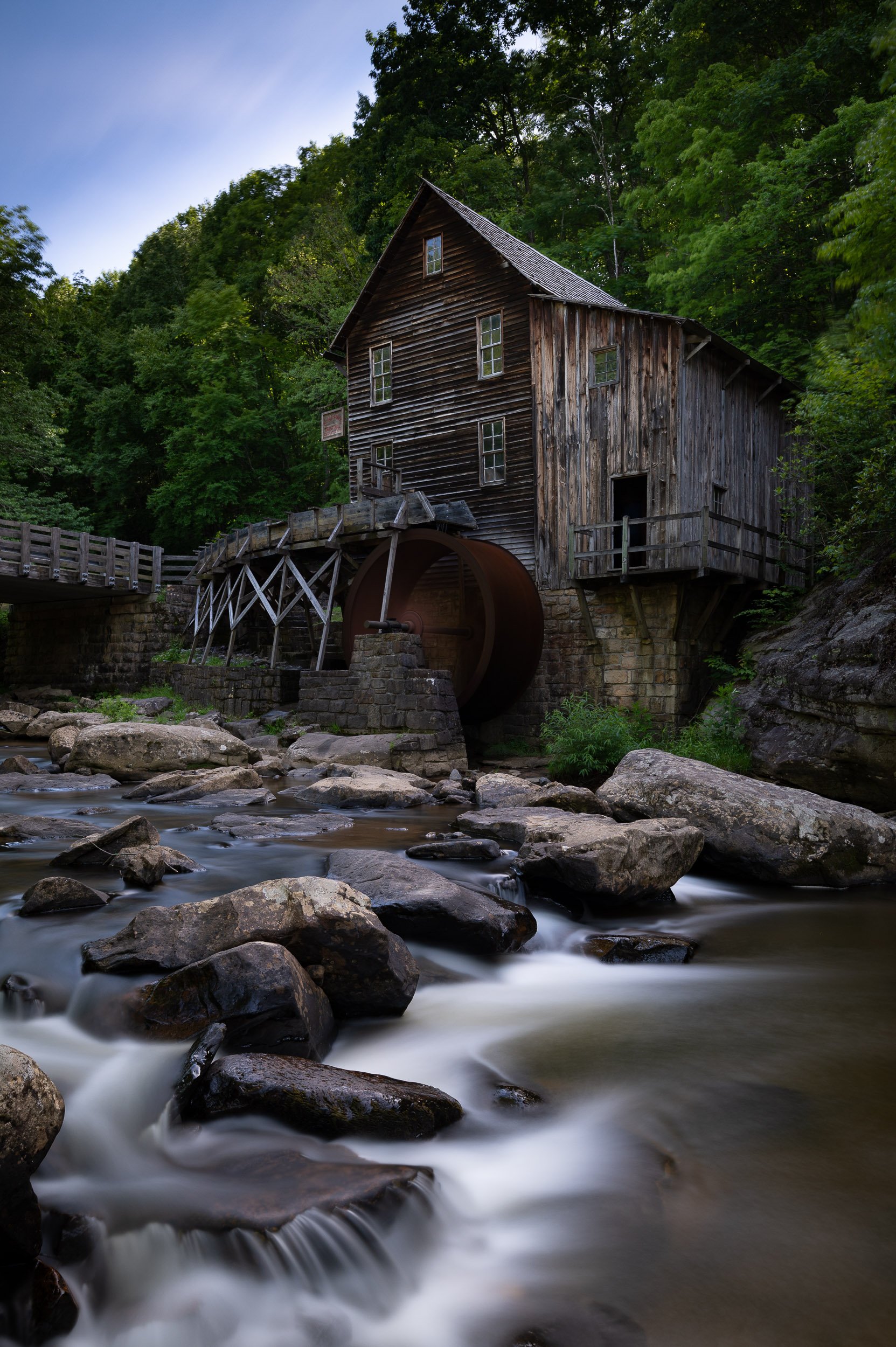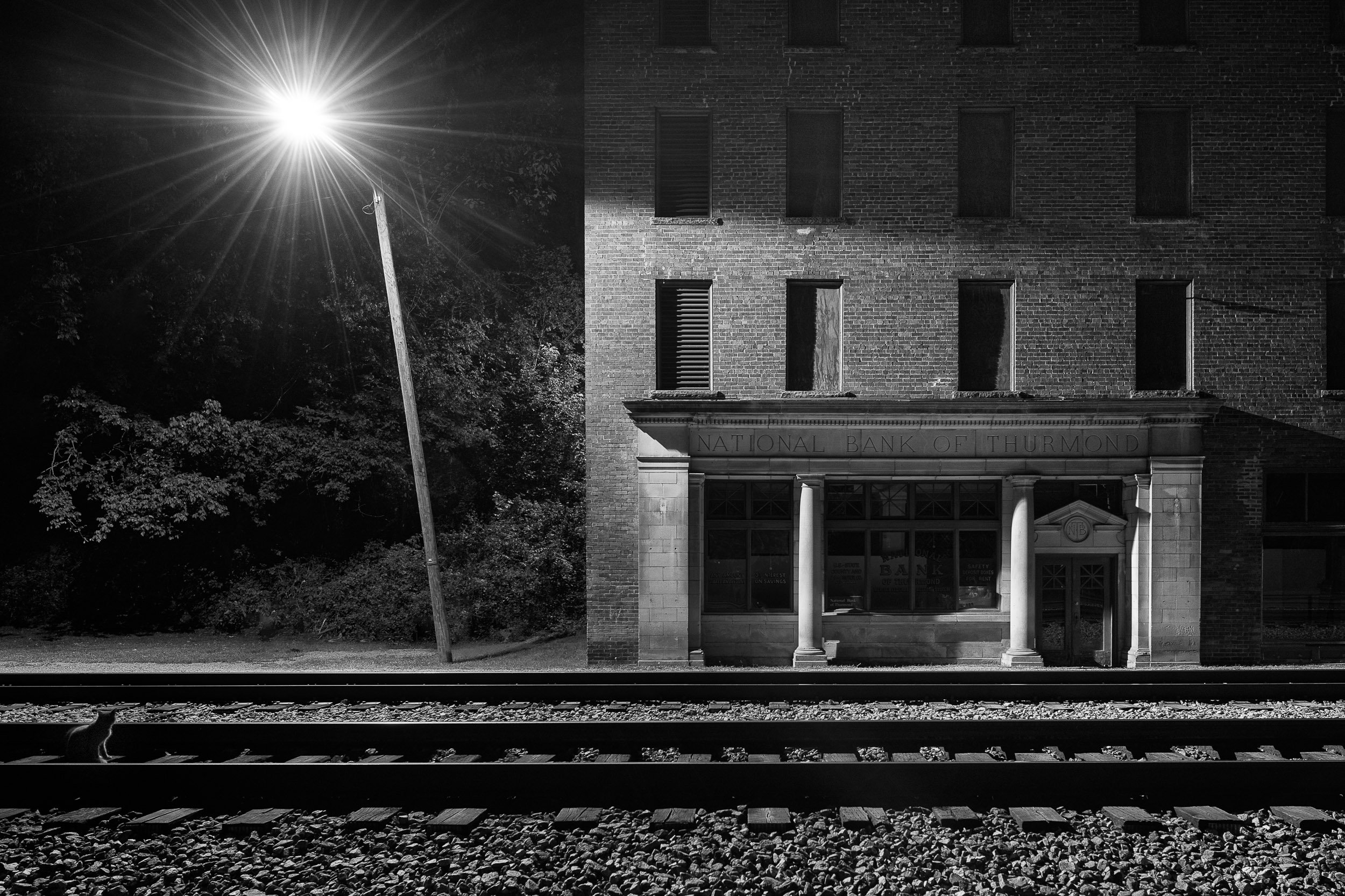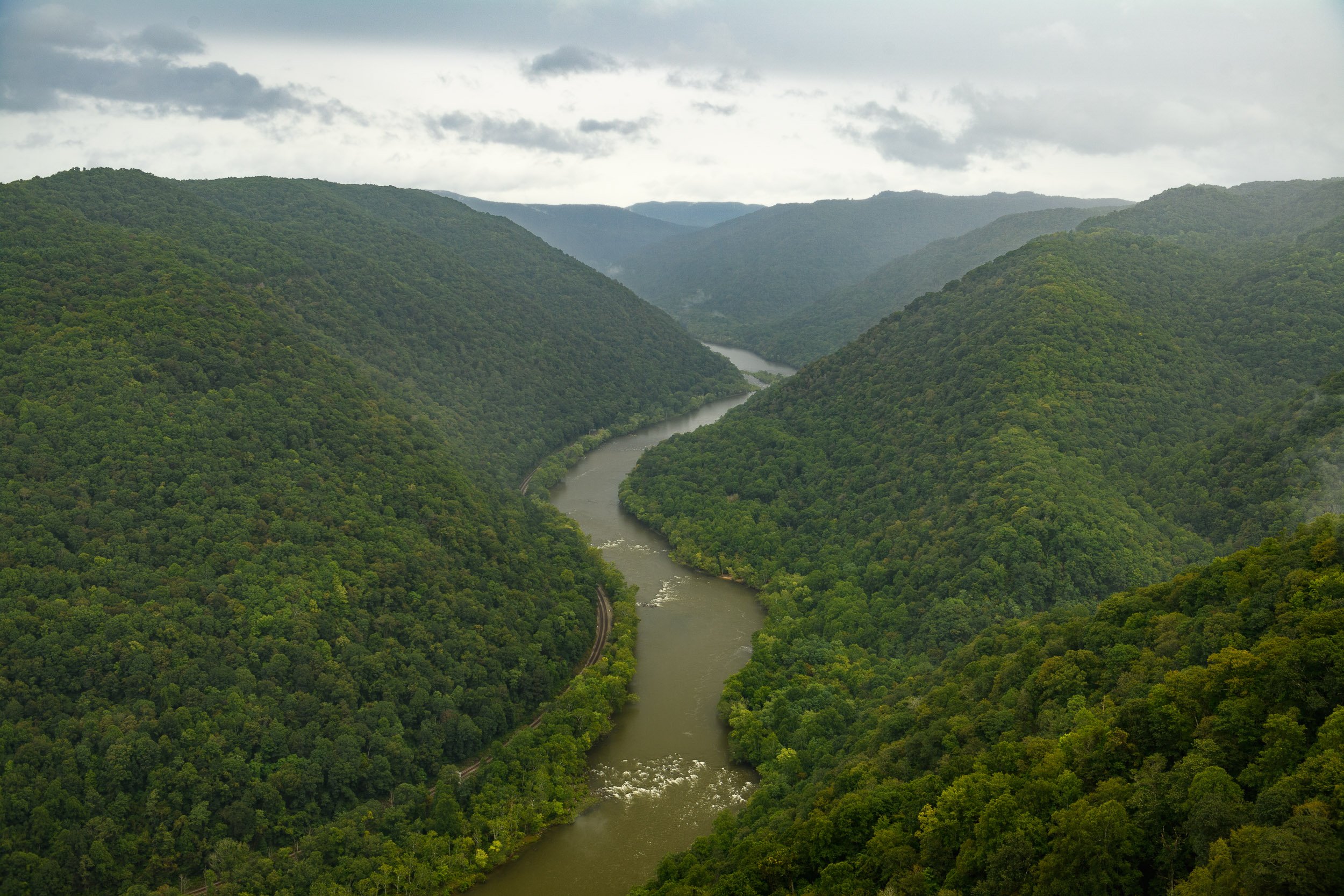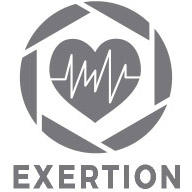New River Gorge National Park
Our nation's newest national park, New River Gorge is an adventurer’s paradise. We’ll spend our days whitewater rafting, zip-lining through the treetops, and exploring the area’s natural, railroad and mining history. Then, of course, we'll be shooting in the dark! Timed at the peak of fall foliage, and the tail end of rafting season, this will be a very full week of both day and nighttime activities.
Workshop Details
October 22-27, 2023 — Completed
This is a 6-night, 5-day workshop. Your adventure begins with a welcome barbecue supper on October 22, and ends after the night shoot on October 27. Our final slide show and image review will be held via Zoom on Sunday, November 5.
$2,695 + applicable taxes. Register below.
Skill level
Intermediate and above. Participants should have a firm grasp of the basic principles of photography and of their cameras, and have a comfortable understanding of night photography fundamentals.
Group size
14, with 2 instructors — 7:1 ratio
NPS website
Our workshop mission is to explore every U.S. national park. As with all our Passport Series locations, it may be years (if ever) before we return to any specific park. If you have a dream of making epic long exposures at night at New River Gorge, we hope you join us.
Workshop Leaders
Registration
This event has passed. Thanks for your interest!
| • Deposit of $695 is required to reserve your spot at the workshop. |
| • Balance of $2,000 is due on July 24, 2023. —> Pay balance here. |
| • You may choose the “Pay in Full” ticket if you desire to pay all at once. |
| • Last day for a cancellation request is July 23 (see cancellation and refund policy). |
| • The workshop fee does not include lodging, airfare, transportation or meals (except for the barbecue welcome supper on the first night). |
The New River Gorge Experience
New River Gorge may be our newest national park, but it is an area that has long been associated with outdoor adventures. Hiking, rock climbing, fishing and, above all, whitewater rafting are the most popular activities along the New River. There is also a potent history of coal mining, and how the introduction of the railroads made extracting that coal a viable production.
During our time in West Virginia, we’ll jump right into some of those activities and explore that history, while photographing the best locations (hopefully at peak fall foliage) under the waxing gibbous moon.
If you are new to night photography, this probably isn’t the ideal workshop for you, because we’ll be foregoing the classroom instruction in favor of maximum time in the park. Be that hiking to the mining ruins at Nuttallburg, exploring and photographing the massive series of cascades at Sandstone Falls, or spending a day rafting through 25 different whitewater rapids on the Lower New River, we’re gonna be getting our feet wet in this park! (Bring extra shoes.)
We’ll photograph from the top of the gorge, as well as down at the river 800 feet below. We’ll spend a night in Thurmond, a ghost town of a train stop that was an important railway town in its day for moving coal, supplies and passengers. We’ll photograph the New River Bridge from above, below and points in between. It's the fifth longest single-span arch bridge in the world, and also the third highest (876 feet) in the United States.
We’ll begin on Sunday night with a barbecue supper at our resort base, followed by an orientation the next morning before we head out on our first adventure.
There are 2 days with scheduled and included activities: a full day of whitewater rafting on the Lower New River, with wetsuits and paddle jackets included, and a treetop canopy adventure that includes 10 different ziplines, five swinging sky bridges, a couple of short hikes on the forest floor and a free-hanging, 35-foot rappel, all with professional guides and safety equipment. You don’t need to be in peak physical form to participate, just in reasonably good shape and with an appetite for adventure!
Our other days will be spent exploring different aspects of the park and scouting our night-shoot locations.
We’ll hold a final image review and slide show via Zoom, a week after you get home, to give everyone time to prepare images––because we won’t be slowing down long enough to pull out the computers while we are there!
What You Should Know
This workshop is best suited for knowledgeable photographers with an intermediate or higher skill set. Participants should have a firm grasp of the basic principles of photography and of their cameras, and have a comfortable understanding of night photography fundamentals. We will be happy to offer advice and answer questions about both day and night photography, but the focus of the event will be on adventure, exploration and getting you to the best locations in the best light.
If you would like to attend this workshop but are unsure whether you have adequate night photography skills, we can offer pre-workshop tutoring to get you ready for your adventure with us. Alternatively or additionally, a few of us have written books that may be productive pre-workshop reads.
What You Will Learn
We hope to push you to step outside your comfort zone—to test the limits of what you and your camera can do.
TOPICS COVERED WILL INCLUDE:
photographing in a high-contrast night lighting situation
daytime long exposure photography
techniques for photographing fall colors at night
and more …
This workshop will have field instruction only. We will be out in the field at different locations each day and night. Participants can stay out shooting as long as they, or their camera’s batteries, hold out. While in the field, the instructors will demonstrate their own techniques and will work with participants one-on-one to make sure everyone gets the most out of the workshop.
Our locations have generous room to explore, so everyone will be able to spread out and not get in one another’s way. Each participant will have the opportunity to work one-on-one with Tim and Lance in the field.
We do not tell our attendees what to photograph, and we won’t line you up in a row to all shoot the same thing (unless it’s helpful to get some people on track). Instead, we encourage you to use what you have learned to create your own unique images, and to let us guide you through the process should you desire.
We do not teach you to do what we do, but rather how to develop your own night vision.
Night Conditions
Logistics & General Info
Travel
Our base at Adventures on the Gorge is located 4 to 5 hours from several major cities, including Charlotte, Cincinnati, Pittsburgh and Washington, D.C. (the perfect road-trip distance).
Alternatively, you can fly into Charleston, West Virginia, which is just 1 hour away, or Roanoke, Virginia, which is a little less than 3 hours away.
Nearby Airports:
Charleston (CRW) — 1 hour from Lansing, West Virginia
Roanoke (ROA) — 2 hours, 45 minutes
Rental Car
You will need a rental car.
There is no need for four-wheel-drive.
If you are interested in carpooling or sharing a rental car, let us know and we will try to connect you with another attendee looking for the same.
You are responsible for arranging and paying for your own transportation.
Lodging & Food
There are 3 options for lodging for this workshop:
We have reserved two different types of hotel room-style cabins. One type is a single room, and …
… the other is a larger suite with a separate living area.
The final option is a private room and bath in a newly renovated six-bedroom, six-bath house with a full kitchen, living room, laundry, hot tub and deck with a grill and outdoor furniture. Tim and Lance will be staying in the house, and there are four rooms available to workshop attendees. These rooms are suitable for singles or couples (one queen bed).
Pricing for all accommodations is per room, not per person––couples and singles pay the same amount.
All lodging is available on a first-come, first-served basis. If you choose one of the cabins, you will reserve and pay for your lodging directly with the resort. If you choose to stay in the house with the workshop leaders, you’ll purchase a separate lodging ticket from National Parks at Night when you pay your deposit.
Food
The resort offers breakfast and pub-grub on site. Nearby Fayetteville has numerous dining options. While meals are not included, we will eat together several times when we are out on location.
We encourage flexibility with your meal schedule as we will prioritize the experiences over food.
You may wish to bring snack food or a sandwich and plenty of water.
You are responsible for arranging and paying for your own meals and accommodations.
Weather
Expect daytime highs in the 60s F, lows in the upper 40s.
Recommended Attire
Long-sleeve shirts for daytime, medium-weight jacket for night.
A sweatshirt and a base layer would be wise. Layers are good.
Comfortable and waterproof closed-toe shoes are recommended for getting around. There won’t be long hikes, but we will be on trails, so quality trail shoes or hiking boots would be optimal.
Exertion Level
The exertion level of this workshop is Moderate. (See more about our classifications.)
This workshop includes a day of whitewater rafting on Class II to V rapids in guided nine-person rafts, and a day of treetop canopy adventures that includes zip lines, sky bridges between trees, a short uphill hike, and a very easy rappel. These activities are included in the price of the workshop, but are optional if you decide they are not for you.
Please consider your physical abilities prior to registering. There are no discounts or refunds if you decide not to partake in the adventures. There won’t be any long hikes, but there will be trails involved, and you should be comfortable carrying your own equipment over uneven ground in the dark.
Note: To ensure the safety of individuals and the group, the workshop leaders may use their discretion to limit an attendee from engaging in a vigorous activity on-site should that person's physical health or ability be in question. If you are unsure about your ability to meet the physical demands of this workshop, we will be happy to discuss your concerns one-on-one before you register. You are also, of course, welcome to attend a workshop and sit out any physical activity that makes you uncomfortable. In such cases, we can provide you with ideas for alternative shoot locations for that time.
Considerations
Please read our FAQs section for more information about skill and gear requirements, and other information that pertains to all our workshops.
If you have questions, please contact us—we're happy to talk it over with you.
Railroads and a River in a Beautiful Valley …
“What I wasn’t prepared for was the beautiful gorge itself and the powerful river that carved it out millions of years ago.”
As a longtime fan of the train photography of O. Winston Link, and knowing that Thurmond, West Virginia, is a historic railroad site, I was eager to be a part of our first workshop to New River Gorge National Park. Although Thurmond is on the C&O line, and Link photographed along the Norfolk and Western, that didn’t matter much to me. Both are historic railroads with a fascinating heritage, and having seen photographs of Thurmond, I was eager to visit.
I learned that the Amtrak train from New York to Chicago still stops at Thurmond three times per week in each direction, and that Thurmond is the second-least busy Amtrak stop in the country. It’s no wonder, with a population of five in the town!
Last year, Chris forwarded me an article titled, “8 Ghost Towns in Southern West Virginia Worth Visiting,” and I knew where I’d be leading a workshop before too long. Except for Thurmond, most of those ghost towns proved to be largely inaccessible, or nothing but a few foundations and faded signs.
What I wasn’t prepared for was the beautiful gorge itself and the powerful river that carved it out millions of years ago. Over 300 miles long, the New River originates in North Carolina’s Blue Ridge Mountains and meanders northwesterly through Virginia and West Virginia before it connects with the Kanawha River.
Considered to be the oldest river in North America, its name of “New River” is indeed curious. I haven’t found an answer to that yet, but during my short visit there this past June while scouting for this workshop, I quickly became smitten with the park, the area and its history.
Rural southern West Virginia is a very different place from rural northern Vermont where I live, but as I settled into my AirBnB above an auto repair shop named Hillbilly Hideout, I let go of my preconceived notions and yielded to the place where I found myself. I quickly came to appreciate this park for the recreational paradise that it is.
